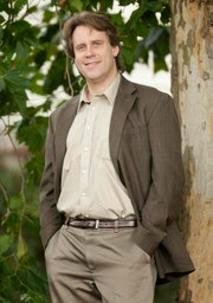In two previous posts on Evangelicalism, I have defined what
I understand to be my responsibility as “an Evangelical” in contrast to those
who would apply that term to something entirely different. (That post can be
found here: http://deathpastor.blogspot.com/2014/11/when-you-say-evangelical-youve-said-lot.html.)
I then addressed the implications of being Evangelical as it pertains to the
unique, singular, and exclusive stance regarding the gospel of Jesus Christ,
while still pursuing conversation and understanding with those outside the
ranks of that designation, and beyond the boundaries of Christianity as well. (It’s
here: http://deathpastor.blogspot.com/2014/11/evangelicals-evangelize-but-that-word.html.)
 |
| "Of course I'm right. Even the real killer can't disagree." |
In both posts, I am very sure that I come across as being very
sure of my position. This is, in part, due to my conviction that inviting
discussion requires a clear statement of my position, in order to encourage
others to state their position(s) with equal clarity. But it is also due to my
conviction that, not to put too fine a point on it, I am right.
How can I presume such a confidence, one easily mistaken for
an air of superiority? As an Evangelical (in what I think is the highest sense
of the word), in emphasizing a high value on God’s written communication, I
cannot escape a Trinitarian and Incarnational perspective. Interpersonal
relationships and the benefits God makes available through Jesus Christ are
paramount to my life and ministry. Among many implications of this commitment:
placing a very high value on every other human person is essential to my
practical devotion to Jesus Christ. As Christ’s servant, I demonstrate my
devotion by serving others. Yet to be concerned for other persons is to be
concerned for evangelism in the assumption that it leads others to the best
possible fulfillment of the life for which they were created. And so, my focus
and investment is not entirely about benefitting the other human persons with
whom I seek understanding and relationship.
 |
| "Of course I'm right. Why else wouldn't I explain myself." |
If I am, first and foremost, a friend of Jesus Christ, I
necessarily share His interests. As Creator, He wants to have the relationship
with each person for which we were designed. As Redeemer He wants to see the
effects of restoration and renewal from the brokenness of our sin and its
damage upon the world in which we live (including our damage by and to one
another). He seeks for a “born-again” regeneration to be accepted by every
person, which He has demonstrated through His incarnation, crucifixion,
resurrection, ascension, and continued intercession.
But where do I fit into all that? I am, admittedly and
badly, broken by sin’s damage in the world, and by my own participation in that
damage (as perpetrator and as casualty, predator at least as much as prey). How
could I presume to prescribe an improvement in belief and behavior for anyone
else? I find my answer in II Corinthians 4:5. Being called by Christ
means I am the servant of all other persons, seeking the very best for them
amidst their present circumstances and toward their ultimate fulfillment, and
that can only be accomplished in and through the gospel.
 |
| "You're welcome to take this road whenever you choose." |
Clearly, though, there is still the valid objection that all
this puts me in the position of “knowing what’s best” for another person. And,
because I do hold the beliefs described above, I accept those charges and plead
guilty. But I also accept that my perceptions of the implications and
applications of those beliefs are uniquely filtered and colored by my own
experience and perspective. Therefore, I try to encourage others to share their
reactions and/or responses to those beliefs, in order to understand what I
believe God to be doing in their lives, whether their beliefs coincide with
mine or not.
My purpose, then, is not to validate my perspective,
position, or passion for the gospel. Neither do I ask others to validate their
beliefs to me. But I do hope to learn how to more clearly communicate the
gospel, the whole gospel, and nothing but the gospel. It would be too clever,
but not inaccurate, to end here with “So, help me, God!” So, I will add that I
intend to continue those efforts by learning more from those who want only part
of the gospel, or something beyond the gospel, or anything but the gospel. In order to communicate at that level, however, I
must be willing to hear others communicate their beliefs clearly as well. Only
then might we overcome the misperceptions, misunderstandings, and
miscommunications that not only distinguish our beliefs from one another, but
which prevent us from pursuing even our essential common interests.




sm.jpg)








